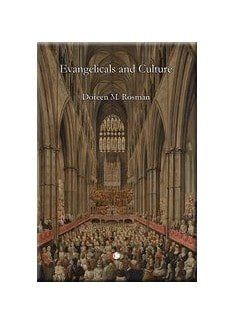Evangelicals and Culture
Doreen M. Rosman
James Clark & Co Ltd
200 pages, £19.50
ISBN: 978-0-2276-8034-6
Star Rating: 2 stars
What were our evangelical ancestors like 200 years ago? Not so much in terms of their church life and beliefs, but what were they like at home and in society? The common view is that they kept themselves to themselves, denigrated all forms of entertainment and held anti-intellectual opinions. In short they were cultural philistines.
This book’s contention is that this reputation is an undeserved distortion. Doreen Rosman has gleaned her evidence by sifting the editorials, articles and letters of evangelical journals of the period, of which there were surprisingly many.
As such she is scrupulously balanced. This is to be expected from a former lecturer in history at the University of Kent, but it is to her credit that she quotes from both sides of the argument. She looks at the period from the start of the French revolution in 1790 to 1833 when Wilberforce died and the Oxford Movement was stirring into life. Ultimately she comes down on the side that says evangelicals were in the mainstream of many aspects of the culture of their day. Whilst remaining opposed to plays and drama they were, for instance, at the forefront in embracing music and reading.
In many ways it is heartening to read an academic account which depicts our spiritual ancestors in a worthy light. But on the other hand it seems strange to read of them in the kind of detached way that you might read of the hunting skills of the Inuits in Greenland.
In the end I identified far more with the evangelicals of 1800 than with our fellow citizens who now study them. It is difficult not to feel under personal attack when reading that, despite their positive contribution to culture ‘“evangelicals” insistence on viewing everything through biblical spectacles seriously inhibited the development of their thinking’.
Ultimately whether they read and enjoyed Sir Walter Scott is not that important.
Paul Mackrell
Slinfold, West Sussex






